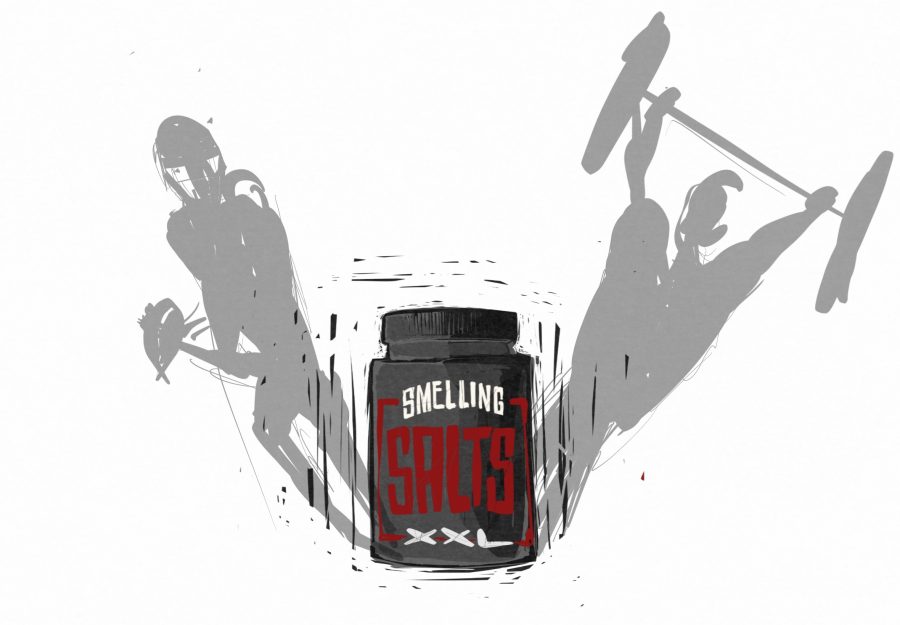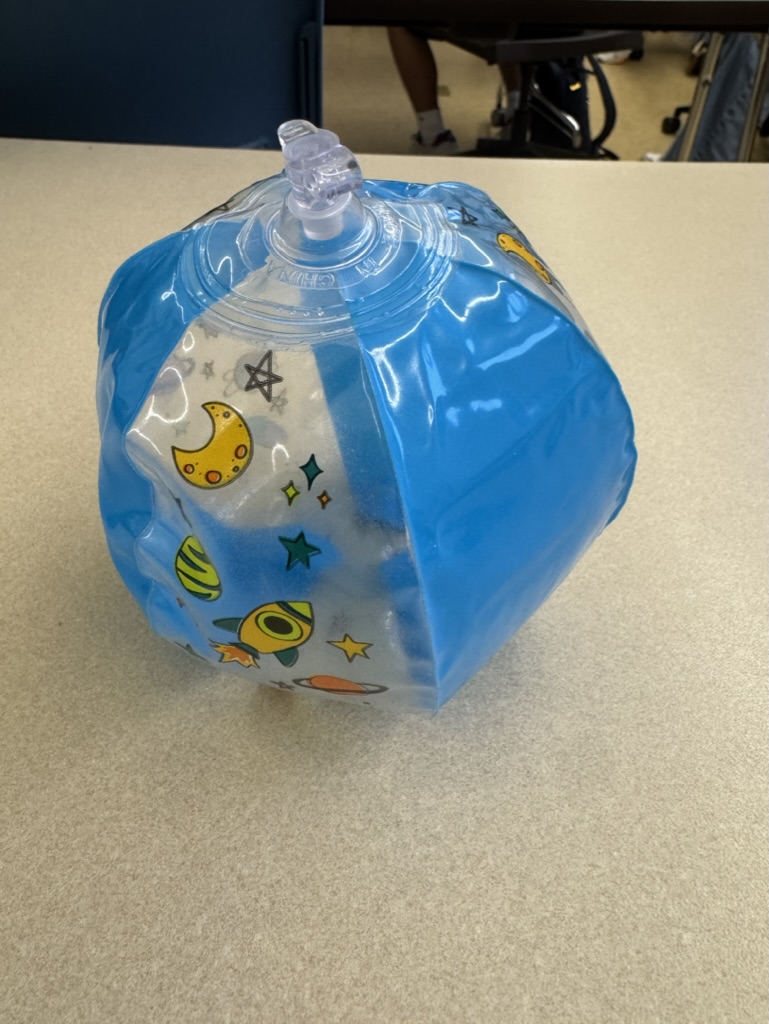Athletes turn to smelling salts for energy boost despite risks
May 8, 2023
Beams of white spill out of the floodlights and onto the field as the crowd cheers from the bleachers and the band plays the pregame “Heavy Action.” Senior and varsity football player Lincoln Tutor reaches for the jar of smelling salts and takes a deep breath as he prepares for the game.
From students to professionals, many athletes like Tutor use smelling salts. These salts consist of a mix of ammonia and other compounds including water and ethanol, and proponents like Tutor say they boost performance and increase focus, but the medical research on the topic is less clear.
Tutor said he and most of the football team use smelling salts before a game.
“It’s normal,” Tutor said. “All of these are like pregame rituals.”
Smelling salts function by irritating a person’s nose and lungs, causing a higher breathing rate and hypothetically causing more oxygen to circulate in a person’s body. Tutor said smelling salts provide an energizing sensation at the trade-off of short-term comfort.
“Inhaling them feels like a little headache, stings your nostrils,” Tutor said. “It feels like a brain freeze. It wakes you up.”
Though smelling salts are legal in the United States for both restoring consciousness to people who have fainted and for athletic use, the safety of smelling salts has yet to be proven. Most high school and professional athletic associations such as the World Anti-Doping Agency and National Collegiate Athletic Association allow the use of smelling salts. However, smelling salts are banned in boxing.
While some athletes use smelling salts to improve athletic performance, scientific research has yielded conflicting results on their performance benefits.
A 2014 study by the Journal of Exercise Physiology found that the use of smelling salts offers no boosts to athletic performance, while a 2018 study by the Journal of Strength and Conditioning Research found potential positive effects on the amount of force muscles can exert, a detail the journal partially attributed to psychological or confidence-based factors.
Athletic trainer Justine Iongi said the quantity of smelling salts most athletes use usually doesn’t pose a serious health threat.
“There wasn’t an incident where an athlete used them consistently enough to receive side effects because it was still frowned upon,” Iongi said. “They kind of did it on their own when nobody knew.”
However, physical education teacher and former athletic trainer Stacey Kofman said smelling salts can pose certain risks in the case of an injury.
“I don’t want (athletes with concussions) to have any other lingering symptoms, and smelling salts could certainly mask something like that or a neck injury,” Kofman said. “I don’t think there’s a reason to use them.”
Other potential side effects of smelling salts include allergic reactions, asthma-related problems, coughing, breathing difficulties, headaches and diarrhea, though most of these side effects are rare. Most smelling salts contain ammonia at a concentration of 50 to 100 parts per million, enough to cause nasal, mouth and throat irritation if used for two hours. However, the majority of athletes only use smelling salts for a few seconds at time.
Kofman said alternatives to smelling salts like caffeine exist but can also cause users health problems.
“If they’re trying to wake up, a cup of coffee (or) soda with caffeine would give you a stimulant effect without the effect hyperextending your neck or causing you to want to shake your body as much,” Kofman said. “But just like anything else, taking a stimulant like caffeine can cause people’s bodies to have other effects. You have to know how much caffeine your body can handle.”
Kofman also said regardless of their effectiveness, athletes are constantly looking for an advantage.
“Is it helpful?” Kofman said. “Who knows? If somebody thinks it’s going to help them, then that’s what they’re going to do.”








Lidia • Oct 31, 2023 at 1:20 pm
Is it ok for my son’s teammate to pass out smelling salts around in school? My son is only 14 and has asthma, if he has a reaction is the school liable, or is the teammate reliable?